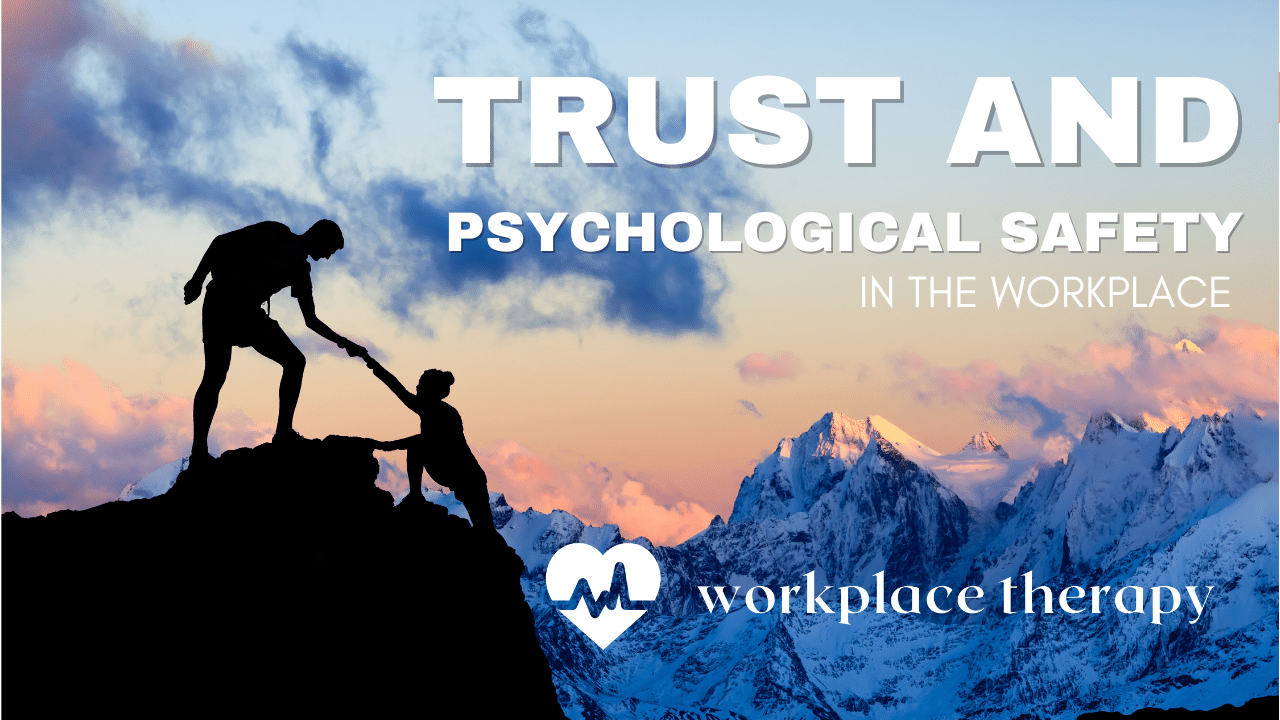Many of us have had experiences working in toxic work environments. Working in toxic cultures can have a significant negative impact on your level of engagement at work, your mental health and the quality of your extended relationships. Once we find ourselves in a toxic work environment, it's hard to make a change. Even worse, we may find ourselves escaping one toxic environment only to immerse ourselves in another. In this episode, Scott and Skylar share their experiences as both candidates and interviewers and share some tips on how you can identify red flags early and reduce the risk of committing to yet another dysfunctional environment.
Read MoreOne of the reasons people go to therapy is to discuss and process a traumatic experience. In this episode, we introduce the concept of "big T" and "little t" traumas. "Big T" traumas describe experiences that threaten your physical safety like physical injury or sexual violence, while little T traumas on the other hand describe experiences that are still distressing but don’t immediately threaten your physical safety like loss of certain relationships or verbal bullying. In the workplace I think very few of our experiences fall into the clinical definition of "Big T" trauma but there are a ton that fall into the little T and maybe even a “micro” T trauma category. For this session we’ll open up these definitions a bit to adapt to the context. We’ll say that trauma is a negative experience that was life-altering for you in some way. In this week's episode, Scott and Skylar share some of their "little t" and "micro t" workplace traumas and discuss how those experiences changed them and what they learned as a result.
Read MoreThis week at Workplace Therapy, we're discussing a situation that happened recently at Twitter whereby an employee (Hallie Thorleifsson) was laid off without notification and had to resort to tweeting Elon Musk to confirm his employment status. After an initial volley of defensive and accusatory remarks, Elon eventually reached to Hallie and apologized, but not before leaving a trail of trauma and cautionary leadership lessons in his wake. This week, the workplace therapy team will be taking a look at this case study and discussing what we can learn from the exchange between Musk and Thorleifsson.
Read MoreThis week, we continue our discussion of an article written by Amy Gallo published by the Harvard Business Review entitled "What is Psychological Safety?" Last week we discussed what trust and psychological safety looks like in the workplace and the benefits of prioritizing trust and psychological safety as a cultural value. This week, we discuss how to determine if your organization has a culture trust and psychological safety and how to cultivate it.
Read MoreThis week, we review an article written by Amy Gallo published by the Harvard Business Review entitled "What is Psychological Safety?" In this episode, we discuss our experiences with trust and psychological safety in the workplace - touching on times when it was done well and other times when it was done poorly. We touch on the true value of cultivating trust in the workplace and the costs of failing to do so.
Read MoreWork is a significant part of the human experience. Most of us will spend more time in pursuit of our vocation than we will on any other singular aspect of our lives. Given how much of ourselves we dedicate to our work, it's not surprising that the workplace can also be a significant source of trauma in our lives.
That's why we created Workplace Therapy - a podcast that puts the human expriences of work front and center. Because if we're going to work together, we need to learn how to heal together.
In this pre-season episode, we'll introduce you to our hosts and talk a little bit about why we created Workplace Therapy and what we hope it will become.
Read More





